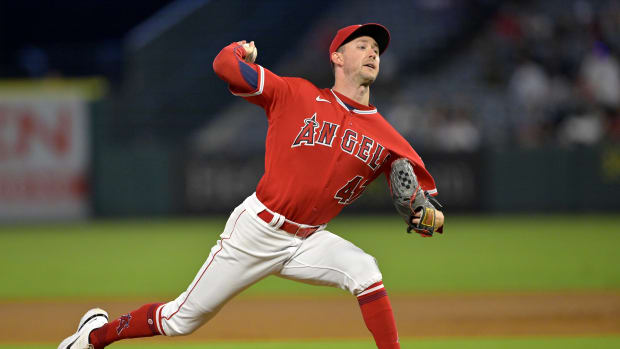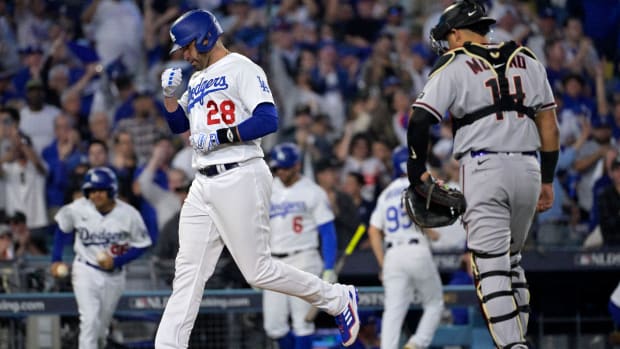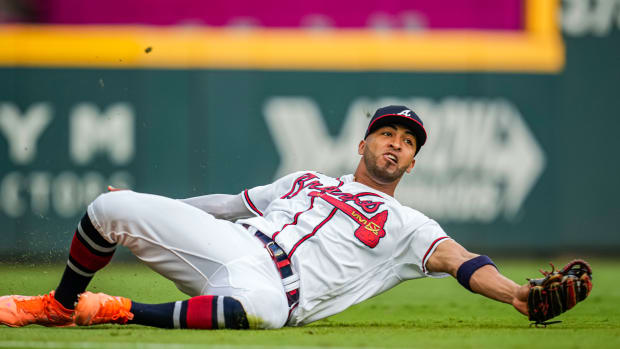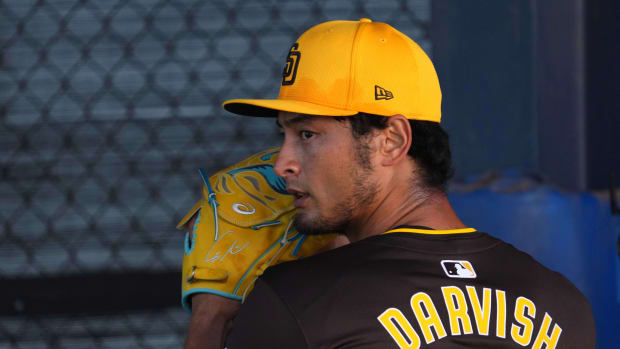Question of credibility
SI.com spoke with two legal experts to get a deeper understanding of the Mitchell Report, its fallout and what the next steps should be. Eric Delinsky, a partner at Zuckerman Spaeder in Washington, D.C., is a white collar criminal litigation attorney. The other is Robert J. Kheel, who taught a course on Sports and the Law at Columbia Law School and is a partner in the litigation department at Wilkie Farr & Gallagher in New York emphasizing on sports and labor law. (Wilkie was a former representative for MLB in labor negotiations in the 1980s and early 1990s and handled some litigation for MLB earlier this decade. Kheel represented MLB in some drug grievances cases in the 1980s.)
SI.com: What should we take away from Sen. George Mitchell's 409-page report?
Kheel: The first and most important thing is that this is a clarion call to the union to stand up and be counted to say we want the majority of our members to have greater protection against untoward conduct by the minority. That has not been the union's stance historically. I would encourage the union to speak up to protect the majority of players who have been hurt by this.
Delinsky: My first thoughts are the very tricky and complicated set of issues regarding the nature and quality of evidence relied upon to name Roger Clemens. There is no documentary evidence of his involvement, but rather testimonial. The public doesn't have the ability to assess [former Yankees and Blue Jays trainer Brian] McNamee's credibility. Sen. Mitchell did. As a criminal defense lawyer, there's no cross-examination I relish more than that of a snitch because they have incentive to maximize their benefits by providing the government with useful information. In this case, the government deemed what would be useful to Sen. Mitchell.
SI.com: Should the Players' Association have been given the report ahead of time?
Kheel: They have no legal right to be given the report. They were asked to cooperate and they said no and told the players not to cooperate. I have no sympathy for that. Given the union's stiff-arming of Mitchell, I'm not particularly sympathetic that Mitchell didn't go out of his way to cooperate.
SI.com: What specific steps should the union take?
Kheel: The union should join with management and condemn this behavior. We should put a searchlight on the union to say, What are you going to do to prevent this from happening again? A good portion of Sen. Mitchell's recommendations require union consent. It's fraught with suggestions, and I don't feel comfortable evaluating the efficacy of any specific proposal, but he thinks specific changes are necessary. The union should start by saying we embrace change and we will work with the goal of this not happening again. MLB should say we'll embrace every regulation that Mitchell proposed and then some and say, Donald [Fehr, head of the player's association], "Come join us."
SI.com: What do you expect Bud Selig do in response?
Kheel: Bud's to going to discipline anybody based on the Mitchell Report. It's got to be a particular investigation on a particular player. They have to do an investigation and file a suspension based on whatever the grounds are and the union has a right to grieve it to an arbitrator and I'm sure they will. The industry will support stronger regulation but I'm very skeptical the union will agree to it unless forced by public opinion.
SI.com: The players were offered the chance to defend themselves and refused. Why then is it not fair to include their names in the report?
Delinsky: That's not how our society works, and that shouldn't be the standard used before we potentially wrongfully accuse an individual. If we are to in a very public way accuse somebody of wrongdoing, then we need to marshal quality evidence of that wrongdoing. Clemens' not talking to the report is not evidence [of guilt]. McNamee needed to have corroboration from more individuals, cancelled checks, video tape evidence, audio tape evidence. That's the type of evidence you see in real cases every day of the week. Ninety-nine percent of the time the government will take that person's word, in this case McNamee, and seek corroboration. If they get it, they'll pursue the case, if they don't they won't.
SI.com: Should the report have been released at all?
Delinsky: No. This report is not bound by rule of evidence, not subject to the good judgment of a judge and jury, not subject to the rules of procedure that are set forth by Congress and the U.S. Constitution. The safeguards of justice in our system are absent here. That's not to say this report is not helpful, or whether it shouldn't have been done, but we should question whether it's right and fair to release it to the public. They should keep it internal and take any internal discipline they want. Baseball could have said it's personal, private and hasn't been tested by the legal process.
SI.com: But if the report is not a legal document and the players don't face prosecution, doesn't MLB have a responsibility as a public trust to release it?
Delinsky: I don't think that makes it right to release it just because Clemens and the other players aren't subject to prosecution. There are consequences to his future honors and his ability to earn a living that turn on his good name. While it's convenient to say let him be tried in a court of public opinion, he doesn't have any tools at his disposal to do that in a public way.
SI.com: What recourse do the accused players have now?
Delinsky: As a lawyer, if I had a client in these shoes, I would conduct a real investigation, debrief my client for hours, try to collect evidence informally to assess whether I could make the case [for a lawsuit]. If the evidence was there, I wouldn't hesitate to bring the case. It would require some thought as to who you bring it against, but it would be extremely difficult if not impossible to bring it against baseball or Sen. Mitchell because they were just reporting what someone else told them.
SI.com: What advice would you give your client?
Delinsky: Every case is different and every person is different. More often than not, I would have advised my client not to speak with Mitchell and it wouldn't be close. You go in blind. You don't know why you're being asked to talk, if they're after you or somebody else. You don't know what the evidence they have is. Because those interviews are not transcribed or taped, the quotes become subject to interpretation and that worries lawyers a lot. And if the interview is recorded, then you're subject to a leak. So when you're not required to be there, there's a disincentive to do it, given the dangers.
SI.com: How valuable is information from former Mets clubhouse worker Kirk Radomski or McNamee?
Kheel: This is the whole problem. Most criminal trials involve snitches. How credible is it? Sometimes the government wins and sometimes it loses. I'm in no position to assess credibility. It is perfectly normal to use information from people who are co-wrong doers. Whether they are doing it to save their own skin is a case the judge or arbitrator has to decide.
SI.com: Did the report strike you as fair and balanced?
Delinsky: I don't think the report overreached. It avoided characterizations and laid out the evidence it collected and drew some big picture conclusions and then laid out recommendations. It was not a shady report. It was above board all the way. It was done in a very classy way, but I did see some red flags in the quality of the evidence that was laid out, the oral evidence of McNamee against Clemens being the largest example of something that I would highlight as a defense attorney. That type of evidence to a lay person is very damning, but to a lawyer who has seen this in court, a witness like McNamee could fold. There could well be another side to this story.


































